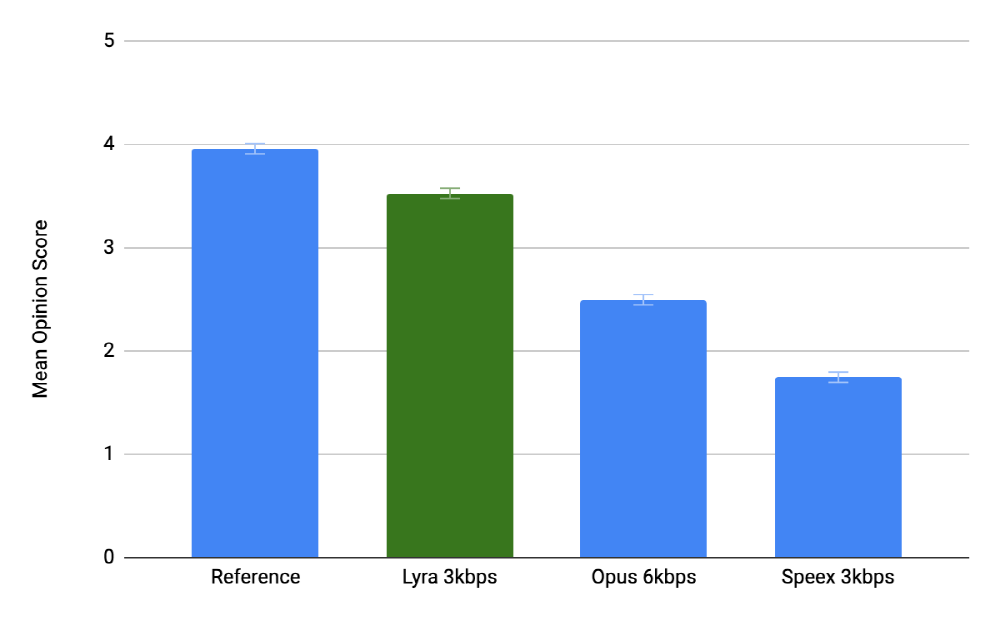
Google announced on February 25 (local time) that it has developed Lyra, a codec that can maintain the original sound and inferior sound quality even at a low bit rate of 3 kbps.
Most codecs use a model that compresses the voice signal for each sample and transmits it, realizing high sound quality. However, this model cannot reproduce the original sound quality due to its low bit rate. However, Google’s newly developed model allows at least data to be used to recreate sound quality.
Opus, a lossy audio compression format released as an open format that can reproduce the original sound quality even at a low bit rate, has a limit of 6 kbps, but Lira is designed to operate at 3 kbps.

One of the challenges in developing codecs for voice and video is how to improve quality with less data usage. Video may feel like it consumes more bandwidth than voice, but in fact, the latest video codecs can achieve lower bit rates than some audio codecs. Below are the voices processed in the original, Opus, and Lira in order.
By combining a low bit rate video codec and an audio codec, it is possible to realize high-quality video calls even on a low bandwidth network. It is explained that by combining Lira with video compression codec AV1, video calls are possible with users connected to the Internet through a 56kbps dial-up connection. Related information can be found here.


















Add comment